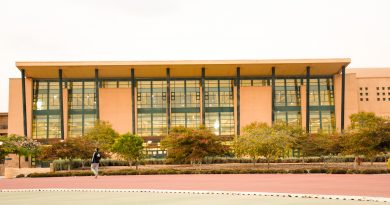How do we talk about terrorism as a global threat?
 In the wake of the coordinated terrorist attacks that shook the French capital last week and left around 130 people dead, the global conversation has diverged into a number of urgent topics and questions.
In the wake of the coordinated terrorist attacks that shook the French capital last week and left around 130 people dead, the global conversation has diverged into a number of urgent topics and questions.
How do we discuss tragedies and their aftershocks?
How does the world deal with terrorism as the single most threat to international peace and security?
Reactions flooded social media, ranging from world leaders expressing solidarity and concern to local commentators and analysts twisting and shaping the tragic events to suit their reading of world politics.
The zenith came as Facebook allowed users to superimpose the French flag on their profile pictures to show solidarity with those killed in the attacks.
Many wondered why Facebook failed to do so for Beirut just a few days prior, which prompted CEO Mark Zuckerberg to issue an apology.
The European right wing is using the Paris attacks to demonize the refugees washed up on European shores fleeing the same terror.
On the other hand, the United Nations High Commissioner for Refugees deplored politicians and media commentators for using the refugees as a scapegoat to further their own existing agendas.
And this isn’t just a European reality.
In Egypt, a number of media figures openly shamed the French security apparatus for ‘failing’ to secure the Stade de France while the French President Francois Hollande was in the vicinity.
More still took the chance to praise the Egyptian security forces and push forth strong hypernationalistic sentiment, complaining about how little attention is given to the Egyptian struggle with terrorism.
Finally, a number of world leaders and prominent figures came out last week to proclaim that we are now witnessing the opening salvo of World War III.
Hollande launched a series of air strikes on the capital of the Islamic State of Iraq and the Levant (ISIL) in retaliation.
But the question remains, will aerial bombing succeed in quelling the seeds of extremism or will it breed further anger and hatred?
Earlier this month I wrote that the media – be it conventional or new – is primarily and crucially accountable to the people.
Media consumers like you and I can and often do influence the discourse.
And that is what we must remember when faced with the divisive rhetoric that is being used to describe world events.




